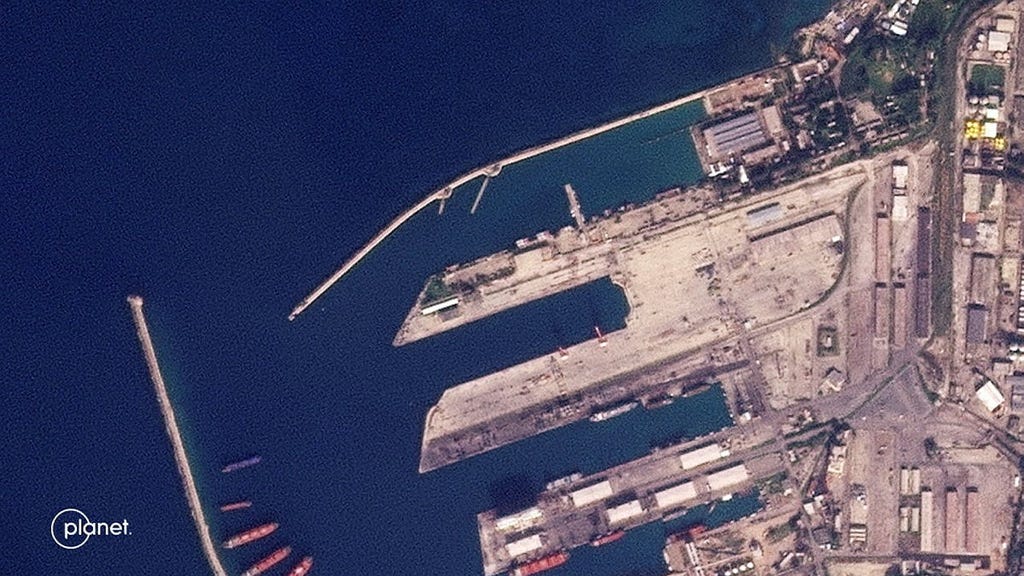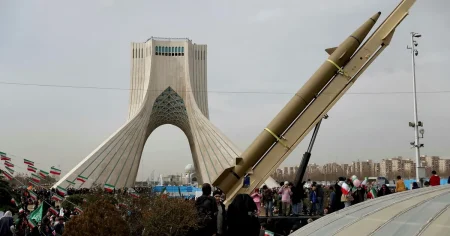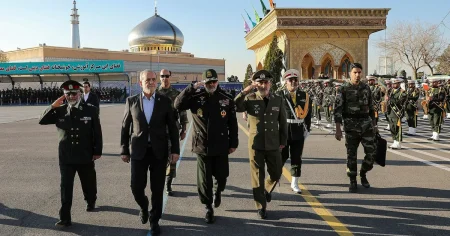The Potential Impact of Russia’s Withdrawal from Syria on the War in Ukraine
Russia’s military presence in Syria, estimated at around 7,500 troops primarily stationed at the Khmeimim airbase, along with a naval contingent of five warships and a number of heavy tanks, has become a subject of intense speculation in light of the ongoing war in Ukraine. Reports from independent Russian media suggest a potential withdrawal of these forces, with heavy transport planes like the An-124 and Il-76 observed making flights between Syria and Russia. This has led to analyses of the implications of such a move on both the Syrian conflict and, more significantly, the war in Ukraine.
While the withdrawal of Russian forces and equipment from Syria might appear significant, its direct impact on the Ukrainian front is likely to be minimal. The relatively small number of troops stationed in Syria, compared to the massive deployment in Ukraine, means their redeployment would not significantly alter the balance of forces. Furthermore, the Russian navy’s effectiveness against Ukraine is questionable, given Ukraine’s demonstrated ability to neutralize Russian warships. The closure of the Bosporus Strait by Turkey to Russian warships further complicates any potential naval involvement in the Black Sea.
The strategic implications of a Russian withdrawal from Syria, however, are more complex and far-reaching. Some analysts, like Tatiana Stanovaja of the Carnegie Endowment for International Peace, argue that the loss of influence in Syria could harden Putin’s stance on Ukraine, making him less willing to compromise in the ongoing conflict. The perceived setback in Syria might fuel a desire to avoid further concessions elsewhere, potentially escalating the war in Ukraine.
Furthermore, the potential loss of its Syrian base, including the naval facility at Tartus, could significantly diminish Russia’s presence in the Mediterranean. This would represent a major strategic blow, restricting Russia’s power projection capabilities in the region. As pointed out by military journalist David Axe, the aging state of the Russian fleet further complicates matters. These vessels may require frequent maintenance and port calls, making long-distance deployments challenging without access to friendly ports like Tartus. The loss of this strategic foothold could further isolate Russia on the global stage.
From a Ukrainian perspective, the withdrawal of Russian forces from Syria is viewed more as a long-term strategic advantage than an immediate tactical gain. While the redeployment of a limited number of troops and equipment would not drastically alter the situation on the battlefield, the broader implications of Russia’s diminishing global influence are seen as positive. The symbolic significance of Putin experiencing a setback, particularly in a region where Russia has invested heavily in projecting power and influence, is seen as a positive sign for Ukraine.
This perceived weakening of Russia’s position could also influence the stance of Western powers. The potential loss of Syria underscores the possibility of Putin suffering defeats, which could embolden Western leaders to provide more robust support to Ukraine. Ukrainian political scientist Oleksandr Chara argues that the hesitancy of some Western leaders to confront Putin in the past, particularly during the annexation of Crimea in 2014, has contributed to the current conflict. He views the potential loss of Syria as a "natural consequence" of this inaction and hopes it will encourage a more decisive response to Russian aggression in the future.
The situation in Syria is therefore viewed through a complex lens, with its impact on the war in Ukraine multifaceted. While the direct military consequences might be limited, the strategic and psychological implications are substantial. The potential loss of influence in Syria could harden Putin’s stance on Ukraine, while simultaneously bolstering Ukrainian resolve and potentially encouraging greater Western support. The evolving situation underscores the interconnectedness of global geopolitical dynamics and the far-reaching consequences of regional conflicts. The withdrawal, if realized, represents a significant shift in the balance of power in the Middle East and could have unforeseen consequences for the ongoing war in Ukraine and beyond.
The potential withdrawal of Russian forces from Syria, even if confirmed and fully executed, is not expected to be a game-changer in the Ukrainian conflict. The numbers of troops and equipment involved are relatively small in the context of the larger war. However, the symbolic and strategic implications of such a retreat are significant. It represents a potential setback for Putin’s foreign policy ambitions and could embolden his adversaries.
The loss of the Tartus naval base would be a significant blow to Russia’s Mediterranean presence. It would limit their ability to project power in the region and complicate logistical support for their naval operations. The aging Russian fleet, reliant on port access for maintenance and resupply, would face further challenges in maintaining a meaningful presence in the Mediterranean without a secure base.
For Ukraine, the potential Russian withdrawal from Syria offers more of a long-term strategic advantage than an immediate tactical benefit. The symbolic victory of seeing Russia retreat from a key strategic position could boost morale and reinforce the narrative of Russian vulnerability. The larger impact could be in the shift of global perceptions of Russian power and influence, potentially leading to increased Western support for Ukraine.
The situation highlights the interconnected nature of global conflicts and the ripple effects of regional power dynamics. The war in Ukraine has exerted pressure on Russia’s resources and commitments elsewhere, including Syria. This interconnectedness underpins the complexity of analyzing the potential implications of a Russian withdrawal from Syria, which extend beyond the immediate military considerations.
The potential withdrawal also underscores the evolving nature of the conflict and the challenges in predicting its trajectory. The interplay of various factors, including the political will of involved parties, the availability of resources, and the shifting global landscape, makes it difficult to ascertain the definitive impact of such a move. The ongoing situation demands careful monitoring and analysis to understand the evolving dynamics and their potential consequences for the region and beyond.
The focus on the potential withdrawal from Syria also highlights the broader strategic context of the war in Ukraine and its implications for global power dynamics. The conflict has become a focal point of tensions between Russia and the West, with implications for regional stability and the international order. The outcome of the conflict, and the related developments in Syria, will likely have lasting consequences for the balance of power and the future of international relations.














